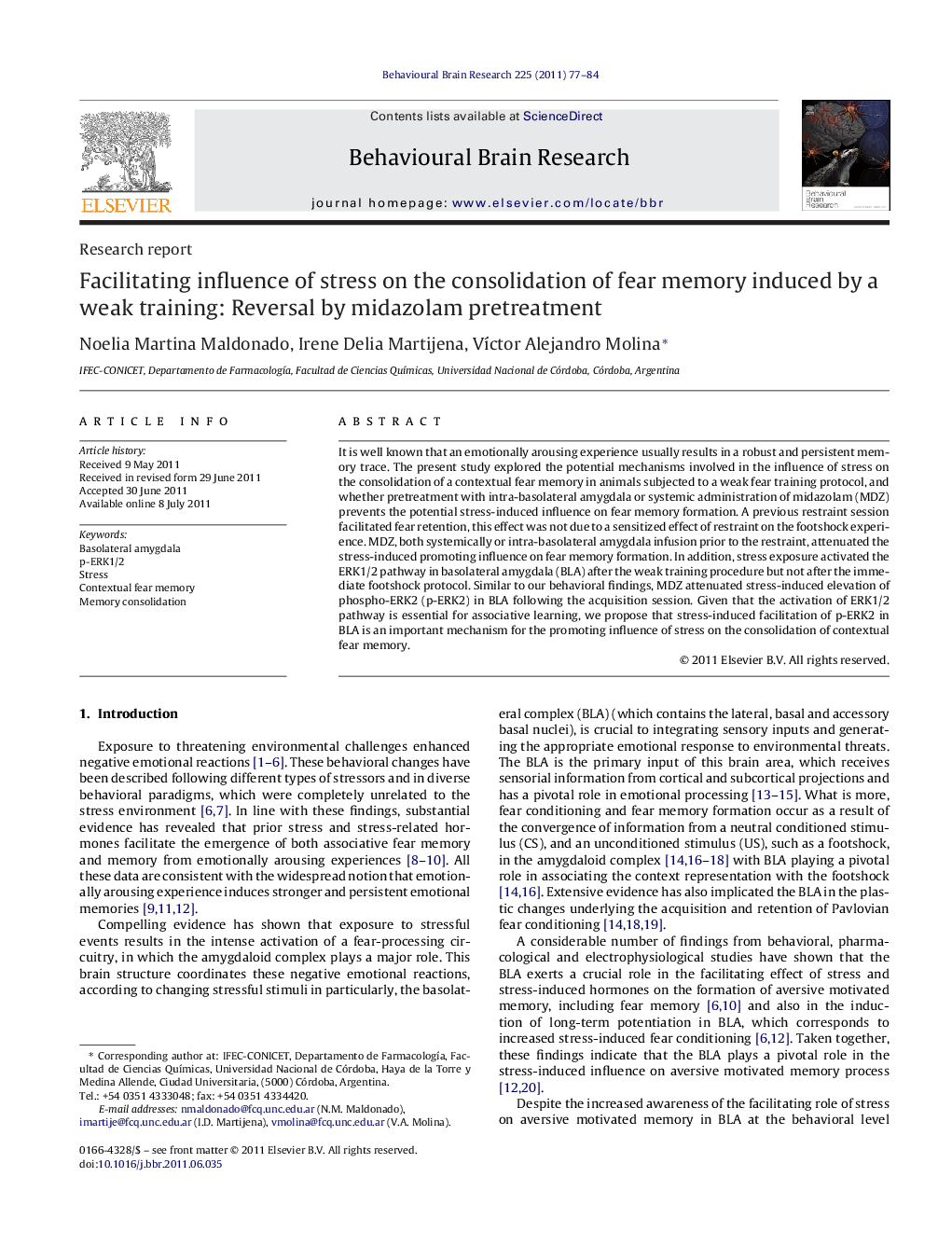| Article ID | Journal | Published Year | Pages | File Type |
|---|---|---|---|---|
| 4313291 | Behavioural Brain Research | 2011 | 8 Pages |
It is well known that an emotionally arousing experience usually results in a robust and persistent memory trace. The present study explored the potential mechanisms involved in the influence of stress on the consolidation of a contextual fear memory in animals subjected to a weak fear training protocol, and whether pretreatment with intra-basolateral amygdala or systemic administration of midazolam (MDZ) prevents the potential stress-induced influence on fear memory formation. A previous restraint session facilitated fear retention, this effect was not due to a sensitized effect of restraint on the footshock experience. MDZ, both systemically or intra-basolateral amygdala infusion prior to the restraint, attenuated the stress-induced promoting influence on fear memory formation. In addition, stress exposure activated the ERK1/2 pathway in basolateral amygdala (BLA) after the weak training procedure but not after the immediate footshock protocol. Similar to our behavioral findings, MDZ attenuated stress-induced elevation of phospho-ERK2 (p-ERK2) in BLA following the acquisition session. Given that the activation of ERK1/2 pathway is essential for associative learning, we propose that stress-induced facilitation of p-ERK2 in BLA is an important mechanism for the promoting influence of stress on the consolidation of contextual fear memory.
► A previous restraint session facilitates fear retention. ► MDZ administration prior to the restraint session attenuated this promoting influence. ► Prior stress induced activation of ERK2 in BLA after a weak training. ► MDZ attenuated this stress-induced elevation of p-ERK2 in BLA. ► Stress promotes fear memory consolidation activating the ERK pathway in BLA.
